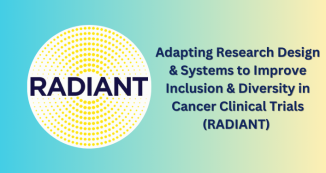
21 Jan Research Nurses That Come to You
One of the common challenges of inpatient clinical trials is integrating research protocol into clinical care. Often times, inpatient staff find themselves juggling the demands of clinical care with the time required to support research activities, and investigators need staff who are well versed in research protocol.
We honestly could not do the study without the Inpatient Research Activity Support program because we are heavily dependent on their nursing staff. We don’t have our own.
The Institute of Translational Health Sciences’ Inpatient Research Activity Support program helps address these challenges by connecting investigators with research nurses who travel to inpatient units at University of Washington Medical Center to complete needed clinical research activities. The service decreases the burden on inpatient staff supporting studies while ensuring all research activities are met as outlined in the protocol.
Dr. Pamela Becker, a Hematologist at Seattle Cancer Care Alliance and UW Professor of Medicine in the Division of Hematology, and Dr. Andrew Herstein, a Research Associate at Seattle Cancer Care Alliance, used the program this year during a Phase I clinical trial studying the safety and tolerability of a chemotherapy adjunct in relapsed/refractory acute myeloid leukemia patients.
Participants stay at UW Medical Center for up to a month at a time to receive the drug. “The challenge for us was figuring out how to conduct the study in an inpatient environment,” Herstein said. “We needed a nurse who would be able to do the pharmacokinetic blood draws that were specified in the protocol.”
The protocol requires up to eight blood draws in a 24-hour period. Because the study looks at the metabolism of the chemotherapy adjunct, the timing of the draws was incredibly important. Asking the busy UW Medical Center oncology floor nurses to perform the draws was not an option. With multiple patients under their care, the floor nurses did not have the extra time needed to focus on the protocol and timed blood draws and vitals, Herstein said.
Looking for a solution, Herstein contacted Hyacinth Lee, nurse manager at the ITHS Clinical Research Center. She recommended the Inpatient Research Activity Support program and worked with Herstein to create a plan based on the study protocol. “I came to her with the protocol and an idea of what exactly we needed,” Herstein explained. “She provided us with nurses that were available at sometimes odd hours of the day and night. That was the major contribution that the program made to the study.”
Herstein said the flexibility, 24/7 on-call availability, and the nurses’ knowledge of research protocol are the biggest advantages of the program. “We honestly could not do the study without the Inpatient Research Activity Support program because we are heavily dependent on their nursing staff. We don’t have our own,” he added.
Learn more about the ITHS Clinical Research Center and Inpatient Research Activity Support program.







